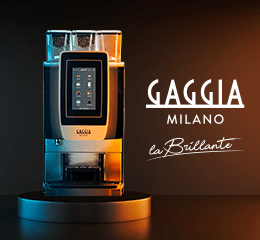GENEVA, Switzerland – The Committee on Sustainability Assessment – COSA, joined by the five UN agencies of the United Nations Forum on Sustainability Standards and leading global firms, recently launched “The COSA Measuring Sustainability Report.”
Until now, we had either very limited or very costly ways to measure the sustainability issues that dominate global discussions on food and agriculture.
The UN, World Bank and others have already stated that most farmers face the considerable threat of deteriorating environments and lower real incomes.
This is especially true for many of the 2.5 billion people living and working on small farms that are classed as poor. It is imperative that we better understand what farming methods are sustainable.
COSA President, Daniele Giovannucci said, “Multi-billion dollar market segments now integrate no less than 435 sustainability standards or “eco-labels” claiming some aspect of sustainability.
Some of these initiatives are a response to the failure of policies to deliver results in the most critical aspects of our food supplies.
So, it is becoming increasingly important to actually measure how effective or how sustainable any initiative or policy really is.”
Today some of the world’s biggest food companies are joining governments and development agencies to actively address sustainable practices in developing countries.
Mars, Unilever, Starbucks, Nestle, and McDonalds are among the firms now investing in new approaches to help them understand what makes the farmers in their supply chains more or less sustainable.
However, with very few evidence-based assessments to evaluate the impacts in comparable and transparent ways, most are at a disadvantage.
“The important question is: how do sustainability initiatives actually affect the sustainability of farmers, communities and the environment? COSA, working together in many global partners, offers credible insights and understanding of what can make the future of agriculture a more sustainable one,” said Ulrich Hoffman, Coordinator of the United Nations Forum on Sustainability Standards.
The launch of the “COSA Measuring Sustainability Report” is a result of COSA’s seven year venture to address the absence of credible and consistently comparable data.
In collaboration with hundreds of organizations and experts, COSA evolved a common set of standardized indicators and practical ways to measure them. COSA’s investment was backed by the Swiss Government (SECO), the Ford Foundation, the International Institute for Sustainable Development, the InterAmerican Development Bank and others to help governments, firms, and producer groups to understand these issues in useful ways.
The report presents surprising findings, unexpected results, and useful lessons, including:
- Higher yields can correlate with better environmental practices – they are not mutually exclusive.
- Results for Sustainability Standards are very context specific: good in some areas and weak in others.
- The overall tendency of certified producers is positive on many scores (yields, income, training) but differences in some key indicators such as food security are inconsistent and many small farmers still lack core needs such as adequate food.
- Multiple sustainability certifications correlate to more, not less, income, but only up to a point.
”There are interesting applications for such new types of sustainability data that “include tracking the geospatial effects of interventions in order to understand supply chain dynamics and the use of efficiency measurements to suggest new ways that we can work with farmers to reduce costs and improve yields.
It is these managerial applications of reliable data that can really move the needle in terms of results, explained Mr. Giovannuci.”
About COSA
The Committee on Sustainability Assessment (COSA) is a neutral global consortium whose mission is to accelerate sustainability in agriculture via practical assessment tools that advance our understanding of social, economic, and environmental impacts.
In coordination with hundreds of stakeholder groups, including many national research institutions, COSA has evolved a congruent set of indicators to measure sustainability and has tested them in thousands of applications.
Today, COSA advises governments, global institutions, and world-leading companies on the use of appropriate metrics and how to more effectively manage their sustainability efforts.














